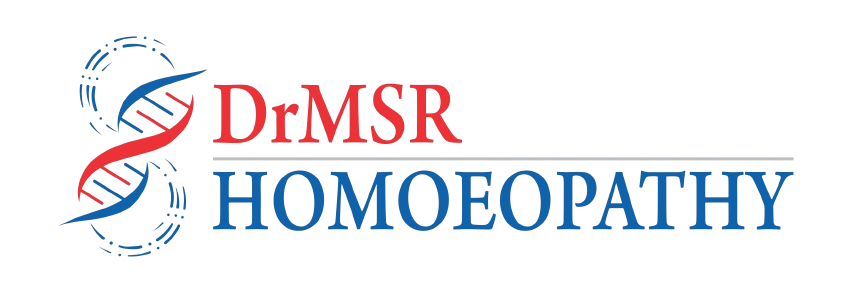Irritable Bowel Syndrome

Irritable Bowel Syndrome (IBS) is a common gastrointestinal disorder that affects the large intestine (colon). The exact cause is not fully understood, but it is believed to result from a combination of multiple factors, including abnormalities in gastrointestinal motility, visceral hypersensitivity, and psychosocial factors. Let’s explore the aetiology and symptoms of IBS in detail.
Aetiology (Causes) of IBS
- Gastrointestinal Motility Disorders:
- In IBS, the muscle contractions in the intestines may be irregular. Some individuals may experience hypermotility (increased contractions) or hypomotility (decreased contractions), leading to diarrhea or constipation, respectively.
- The abnormal motility can affect the normal digestion process, causing discomfort and changes in bowel habits.
- Visceral Hypersensitivity:
- People with IBS may have increased sensitivity to pain or discomfort in the intestines. This hypersensitivity means that the stretch receptors in the intestines overreact to normal digestive processes, leading to pain, bloating, and discomfort.
- Gut-Brain Interaction:
- There is a complex interaction between the gut and the brain (called the gut-brain axis). Psychological stress or anxiety can exacerbate symptoms, and disturbances in this axis may contribute to IBS development. Conversely, gut inflammation or infection may also alter the way the brain perceives signals from the gut.
- Alterations in Gut Microbiota:
- Dysbiosis, or an imbalance in the gut microbiota, has been suggested as a contributing factor. Changes in the population of gut bacteria can influence intestinal motility, immune function, and sensitivity, possibly triggering IBS symptoms.
- Infections and Post-Infectious IBS:
- In some cases, IBS develops after a gastrointestinal infection (such as bacterial or viral gastroenteritis). This post-infectious form of IBS is thought to involve an immune response that persists even after the infection has resolved.
- Genetics:
- Family history plays a role, and there may be a genetic predisposition to developing IBS, although no specific genes have been conclusively linked to the condition.
Symptoms of IBS
Symptoms of IBS can vary widely between individuals but typically include a combination of the following:
- Abdominal Pain and Cramping:
- The most common and hallmark symptom of IBS is abdominal pain. This pain is often described as cramp-like or intermittent and may be relieved by passing stools or gas.
- The location of the pain can vary, but it is usually in the lower abdomen.
- Changes in Bowel Habits:
- Diarrhea (IBS-D): Frequent loose stools, urgency, and feeling the need to pass stool without warning.
- Constipation (IBS-C): Infrequent stools, hard or lumpy stools, and difficulty passing stool.
- Mixed IBS (IBS-M): Alternating between diarrhea and constipation.
- Bloating and Gas:
- IBS often leads to a sensation of bloating or fullness, particularly after eating.
- Excessive gas production and difficulty passing gas are common symptoms.
- Mucus in Stools:
- Some individuals with IBS may notice the presence of mucus in their stools, which is not typically found in other gastrointestinal disorders like inflammatory bowel disease (IBD).
- Feeling of Incomplete Bowel Movement:
- Individuals with IBS often experience the sensation that they have not completely emptied their bowels after passing stool.
- Fatigue:
- Many individuals with IBS experience tiredness or fatigue, which may be related to the discomfort and sleep disturbances caused by the condition.
- Nausea:
- Nausea may accompany IBS, particularly during episodes of abdominal discomfort or bloating. However, vomiting is rare in IBS.
- Psychosocial Symptoms:
- IBS is often associated with stress, anxiety, and depression, which can worsen symptoms. The condition can negatively impact quality of life, leading to social, occupational, and emotional challenges.
Diagnosis and Management
IBS is diagnosed primarily through clinical evaluation, often based on symptoms and exclusion of other gastrointestinal conditions. There are no specific tests for IBS, but doctors may use a combination of tests (e.g., blood tests, stool analysis, colonoscopy) to rule out other conditions such as inflammatory bowel disease or colorectal cancer.
Treatment typically involves:
- Dietary Changes: Including a high-fiber diet, elimination diets (e.g., FODMAP), or avoiding trigger foods.
- Psychological Therapy: Cognitive-behavioral therapy, relaxation techniques, and stress management.
- Probiotics: To restore gut microbiota balance.
- Lifestyle Modifications: Including regular exercise, proper hydration, and stress management strategies.
- HOMOEOPATHY MANAGEMENT
Homeopathy can be an option for managing symptoms of irritable bowel syndrome (IBS), which is a chronic condition that affects the large intestine and can cause symptoms such as abdominal pain, bloating, diarrhea, and constipation. Homeopathic treatment for IBS aims to address the root causes of the condition and provide symptom relief through highly individualized remedies.
Common homeopathic remedies used for IBS include:
- Nux Vomica: Often prescribed for IBS with symptoms of constipation and irritability. It may be helpful when symptoms are aggravated by stress, overindulgence, or a sedentary lifestyle.
- Lycopodium: Used for IBS with bloating, especially after eating. It may be indicated when there is a feeling of fullness and discomfort, along with constipation and digestive issues.
- Podophyllum: This remedy may be useful for diarrhea-predominant IBS, especially when there is a sudden urge to pass stool, accompanied by watery diarrhea.
- Arsenicum Album: Often used for IBS with a mix of diarrhea and anxiety, especially if there is a burning sensation or the person feels weak and exhausted.
- Chelidonium: Beneficial for liver and digestive complaints, particularly if there is bloating and a sensation of fullness in the upper abdomen.
- China: Can help with digestive disturbances, particularly when there is weakness after diarrhea or loss of fluids.
It is important to note that homeopathy treats individuals holistically, so remedies are selected based on the person’s overall symptoms, personality, and lifestyle. For effective treatment, it’s recommended to consult a trained homeopath who can tailor the treatment plan to the individual’s needs.
